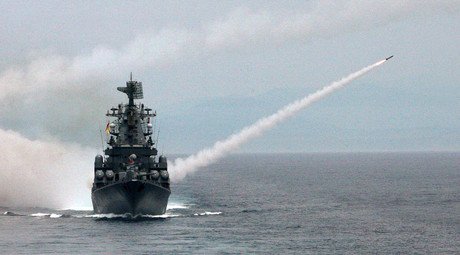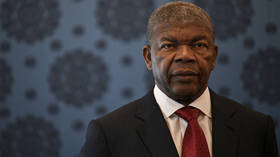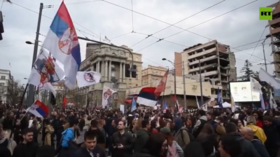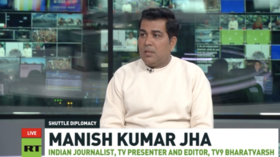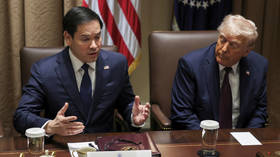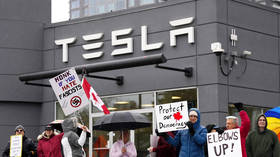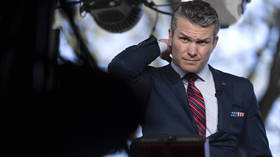Putin will respond: Russians feel betrayed as Turkey stabs them in the back
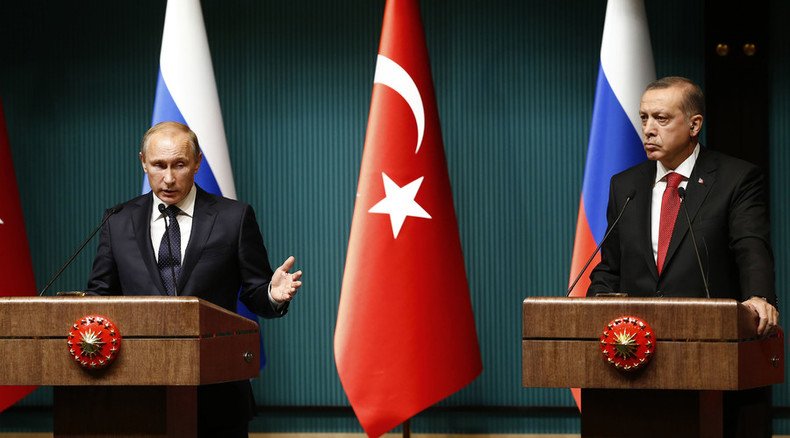
Vladimir Putin, who has a reputation for speaking in measured tones and not being prone to rash outbursts, has never seemed as furious as he was following Turkey’s shooting down of a Russian military jet over Syria. Make no mistake, Russians feel betrayed by Turkey.
LIVE UPDATES: Russian warplane shot down at Syria-Turkey border
Journalists on the Russia beat spend an inordinate amount of time watching, analyzing and listening to Vladimir Putin. He has been the central figure in Russian politics for 15 years now, 11 of them as President. “Playing chess while others play checkers,” as many observers frequently note.
I have never seen Putin as furious as he was during Tuesday’s Sochi briefing. At least not since his brief 1999 stint as Prime Minister, when he promised to “waste terrorists in the outhouse” after a wave of Islamist attacks inside Russia.
The Russian president clearly feels that Recep Tayyip Erdogan has personally betrayed him. “Today’s loss is a result of a stab in the back delivered by accomplices of terrorists. There is no other way I can qualify what happened today,” he stated. It’s not only Putin who feels double-crossed. For hours, #УдарВСпину, the Russian approximation for ‘stab in the back’ trended on Twitter. Russian people have long regarded Turkey as a friendly country. Millions of them holiday there and there is barely a large Russian city without a Turkish migrant worker presence, with over 20,000 in Rostov alone. That goodwill probably died on Tuesday.
Erdogan's lack of loyalty
Erdogan has a nasty habit of turning on long-standing partners of Turkey. Back in 2008, he kiboshed the famed alliance between Ankara and Tel Aviv, after Israeli President Ehud Olmert invaded Gaza. Bashar Assad once holidayed with Erdogan’s family. However, since 2011, Erdogan has conducted airstrikes inside Syria and armed opposition groups. There have been frequent rumors of an escalation, including last year when an audio recording emerged on YouTube of leading Turkish officials discussing a potential invasion. Erdogan responded by blocking YouTube in Turkey, in a conspicuous example of shooting the messenger.
Erdogan’s Syria strategy has been a disaster. Four years ago, Ankara gambled that Assad’s days were numbered. After all, the ‘Arab Spring’ had swiftly removed anti-Western governments in Egypt and Libya so the odds looked appealing. Erdogan’s punt backfired. Turkey’s policies have incensed the Kurds, who already loathed Ankara, and Iran, which has been removed from isolation and is beginning to reassert its power. Meanwhile, after the Paris attacks, the West is no longer primarily focused on removing Assad. Instead, the main concern is destroying Islamic State.
Erdogan’s conundrum is that Ankara has essentially created the conditions for ISIS to blossom. This why Putin slammed the Turks as “accomplices of terrorists.” Turkey has made no serious attempts to seal its borders with Syria, leaving its territory the principle staging post for ISIS. Additionally, it has been well documented that most foreign jihadists fighting in Syria have arrived there via Istanbul or Adana.
if only #Turkey was as vigilant about its land border with #Syria as it is about its airspace...
— Michael Degerald (@MENAhistorian) November 24, 2015Western media almost totally ignored the story, but last week at the G20 summit in Antalya, Putin dropped a massive bombshell. He alleged that ISIS has been being financed from 40 countries, including some G20 members. The dogs in the streets of Damascus knew he was referring to Turkey and Saudi Arabia as did the G20 participants involved.
Turkey's ‘Double Game’
Putin also spoke of the urgent need to curb the illegal oil trade by ISIS. “I’ve shown our colleagues photos taken from space and from aircraft which clearly demonstrate the scale of the illegal trade in oil and petroleum products,” he said. “The motorcade of refueling vehicles stretched for dozens of kilometers, so that from a height of 4,000 to 5,000 meters they stretch beyond the horizon,” Putin added, comparing the convoy to gas and oil pipeline systems.
Late last week, the Russian Air Force began specifically targeting these convoys in an attempt to annihilate the terror group’s main source of revenue. The General Staff reported that 500 fuel tanker vehicles were destroyed in the first few days and provided video evidence of some hits.
Of course, a US special forces raid in May had uncovered startling evidence that ISIS smugglers had been selling the oil to Turkish businessmen. According to UK newspaper the Guardian, “over the past two years several senior ISIS members have told the Guardian that Turkey preferred to stay out of their way and rarely tackled them directly.”
Turkey’s double game is well known to governments in the West. However, they are hamstrung by the country’s NATO membership, which dates back to 1952, when Turkey was governed by Celal Bayar and was a genuine democracy. Turkey’s geo-strategic importance is probably the main reason why other NATO participants and their media have turned a blind eye to Ergodan’s rolling back of democracy. Nevertheless, journalists from non-NATO member states like Finland, Ireland and Australia have labeled Erdogan a ‘dictator’.
The next steps
An example of the absurdity of America’s continued support for Erdogan is the fact that Ankara is backing Turkmen rebels in Northern Syria who in turn work with Al-Qaeda. That’s the same terror organization which, under the command of Osama Bin Laden, flattened New York’s World Trade Centre towers in the 9/11 attacks of 2001. Thus, it appears apparent that Washington can’t decide who is a bigger enemy, the ISIS and Al-Qaeda faction or Russia.
Interesting. Pentagon officials say downing of Su-24 "incident between Russian and Turkish govts." Turkey has some convincing to do at NATO.
— Mark MacKinnon (@markmackinnon) November 24, 2015Nevertheless, on Wednesday morning, the US distanced itself from Turkey and its officials believe that Erdogan’s forces destroyed the Russian plane in Syrian airspace.
BREAKING: U.S. believes Russian jet exploded in Syrian airspace: official
— Reuters Top News (@Reuters) November 25, 2015With Francois Hollande scheduled to arrive in Moscow this week, there remains hope that a coalition can be formed between Russia and the West to bring down ISIS. However, it’s abundantly clear that Turkey can’t be part of that solution. That opens up a can of worms for NATO. Even aside from Turkey’s close relations with the terrorists, it is simply impossible to imagine Russia and Turkey joining forces after Tuesday’s events. Thus, if Russia and France want to establish a genuine anti-ISIS alliance, France will have to disregard Turkey, its ostensible NATO ally.
As for Putin’s next move? It’s unlikely, but not impossible, that Russia would seek to further escalate tensions, no matter how enraged the Kremlin may feel. Regardless, there will eventually be a response from Putin. Nothing is surer.
Russia is Turkey’s second largest source of tourists (four million ever year) and its second biggest trade partner. Additionally, Russia accounts for a fifth of Turkey’s entire energy supply. There were plans for Rosatom to build Turkey’s first nuclear plant next year and Ankara and Moscow were supposed to team up for a new gas pipeline called Turkish Stream.
Russia's Federal Tourism Agency calls on tour operators and travel agents to "suspend promotion and sales of all travel products" to Turkey
— Alexander Marquardt (@MarquardtA) November 24, 2015Foreign Minister Sergey Lavrov has already advised Russians not to visit Turkey and the Federal Tourism Agency has called on Tour Operators to halt sales to the country. This is probably just the start. Russians feel betrayed by Turkey. Erdogan will, most probably, reap a whirlwind. Putin has many options.
LISTEN MORE:
The statements, views and opinions expressed in this column are solely those of the author and do not necessarily represent those of RT.

